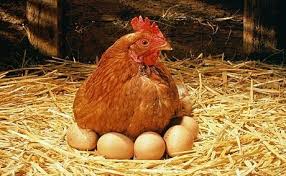

When you go out to collect eggs in the morning, chances are a feeling of elation overcomes you at each egg found. Knowledge that your hens are happy and healthy is reinforced by each egg you come across. If there are few eggs or even none at all, a whole different feeling overcomes you, disappointment.
Decreased egg production can happen for a lot of reasons. These reasons can vary from environmental disturbances to health issues or even stress. To diagnose which birds’ laying has decreased, it helps to know where each hen lays where and how many eggs are normally laid. An overall tally showing a reduction only goes so far when it comes to birds that may have individual, specific problems in need of addressing.
There are some typical reasons for a decline in egg laying that should be considered and ruled out.
First on that list is molting. If your hens are molting, the protein and energy in their body that would usually go toward laying eggs is now required for the purpose of growing new feathers. Extra protein during molting will move the process along, encouraging both feather regrowth and a return to laying.
Another likely culprit is decreased lighting. As the seasons change and less daylight is present, egg laying tends to become lessened or even stop entirely. Hens that go broody can also take several weeks to begin laying again, even if you are able to get them off of the nest and back within the flock.
Stress can be a big trigger, and chickens stress in ways that are sometimes easy to overlook. A change in diet or housing may cause stress. So can the loss or addition of flock members. Pestering by predators or well-meaning children may also prove to be a great source of stress.
Other stress triggers are illness in the form of internal or external parasites, severe weather such as extreme heat or cold, inadequate water supply, and disruptive sounds or frequent, loud noises such as barking dogs.
If a drop in egg laying occurs amongst most or all of the flock without obvious reasoning, exploring the possibility of parasites (worms, coccidia, lice, mites, etc.) amongst the flock is worthwhile as it could very well be the explanation.In the event that attempts to diagnose decreased egg production fail, then perhaps a decrease is not occurring after all.
Other possible explanations are that eggs might be missing, due to predator theft, eggs being laid in grassy areas instead of in nesting boxes, or even egg eating. If you rule these out as well, it could be that hens are past their egg laying prime and productivity is naturally decreasing.
The key to diagnosing a decrease in egg laying is knowing what is normal for each of your hens. Also important is keeping a watchful eye on them both in terms of coop behaviors and free range behaviors. If you suspect eggs being laid away from the coop, preparing to spend a day tracking the activities of your chickens.
 Contact Jaguza Support
Contact Jaguza Support